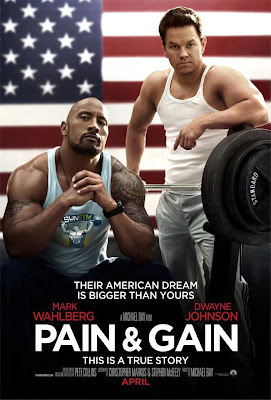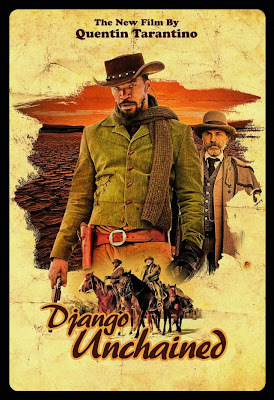‘Inside Llewyn Davis’ There Is A Man, A Guitar, And A Cat (Movie Review)
♪ I remember one evening in the
pouring rain and in my heart was an aching pain ♪
At
times it can be hard to elaborate on why regard can be put so high on certain
films. Without tip-toeing around it, I
think Inside Llewyn Davis is an
incredibly well-made, well-acted, fantastically strange film that receives the
highest rating from me, because I do not know what could be made different to have
it be even better. It is in no way a
film that is accessible to everyone, which pretty much comes with the territory
when discussing the majority of films from the Coen Brothers, but that matters
little to how I received the film. The
film I watched was highly entertaining for a myriad of reasons that stem from
the realms of both comedy and drama, when it comes to hitting just below the
surface of what this film is, but also has plenty more to consider, as you go deeper
into it. Often times I find myself
attempting to find problems with a film that I am really enjoying in an effort
to be more constructive in a critique of it later on. Inside
Llewyn Davis did not even push me to that direction, which may have been
due to my fondness of creative directors being very successful at producing the
film they wanted to make or because of how absorbed I was by all the great
music.
Music
is a big part of this film. Set in the
1960s and spotlighting the folk music scene in Greenwich Village, New York the
opening of Inside Llewyn Davis is
focused on one man performing an entire song at a club. It is a strong cold open, as it presents us
with a song that is nice to listen to, sure, but also evokes some pretty dire
imagery about a man being hanged. There
is little in the way of emphasis during this whole sequence. Shots are mainly focused on the man, but the
film cuts around to different parts of the club, as the audience observes the
song being performed. Much of the same
can be said for the rest of the songs in this film, as they are almost all
played in their entirety, with the movie essentially settling down, letting us
watch these musical interludes. If the
Coen Brothers wanted a loose excuse to make a musical, Inside Llewyn Davis is certainly doing a lot to fall into that
classification.
We
learn that the man in the opening is Llewyn Davis (Oscar Isaac), a struggling
folk singer, who was once a part of a semi-successful duo, before his partner
jumped off a bridge. As Llewyn, Isaac
joins the ranks of leading men in Coen Brothers movies that play a character
that just can’t get a break, regardless of the talents they may possess. Llewyn is a talented musician, but he is going
nowhere. He has no home, moving from
couch to couch at different friends’ places, which are decreasing more and more
in number, as Llewyn has a knack for burning bridges. Any chance at a successful development seems
practically pre-ordained to backfire in some way for Llewyn, sometimes due to
his own actions and sometimes due to the fact that life can be cruel for no
real reason. He is a man who is stuck
between gears and can’t make a significant shift to a different level. The various chances seem to just bring him
back to where he started.
With
all this, Oscar Isaac is able to do tremendous work in really bringing out the
soulfulness in this character when he is performing, driving, or doing pretty
much anything that does not involve conversing with other people. When he does face interaction, Isaac handles
the rhythms of Coen-style dialogue greatly, as there is true humor to take away
from the kinds of arguments and discussions he finds himself in, along with a way
to really harness the melancholic nature of his life, when put up against the
lives of others. It is also in these
conversations that we have a chance to meet the rest of the cast.
While
every scene of this film surrounds Llewyn in some way, the supporting cast is
certainly up to the challenge of fitting right in with him. Justin Timberlake and Carey Mulligan star as
Jim and Jean, a music duo/couple with awkward ties to Llewyn, as Jim considers
Llewyn to be his best friend, even though Llewyn has secretly slept with
Jean. Timberlake is in the film for
around 10 minutes, but he provides enough to show how he has become a
successful version of Llewyn. Mulligan
has more to do here, as her part requires her to constantly be mean to Llewyn
for putting her in such an awkward position, but even as she expresses lots of
malice towards Llewyn, more can be found in how
she is saying these things to him, which, in turn, allows for a lot of hurtful
dialogue to have a nuanced form to it.
Other
actors pop up in this film as well.
Coen-regular John Goodman arrives as another larger than life character,
Roland Turner. Roland is a crippled, yet
expressive and loquacious lout, with a quiet driver, Johnny Five (Garret
Hedlund), and they are willing to take Llewyn on a ride with them to Chicago at
one point. There is no use revealing the
kinds of things that go on between these three, beyond the attempts to be civil
with one another, only to be hindered by various differences in opinions as to
what Llewyn think is an appropriate way to express himself as a person (with
his folksy ways) vs. what Roland and Johnny see as appropriate. There are other characters that could be
mentioned as well, but they all serve the same basic purpose, as they either
allow Llewyn to reveal more about his approach to getting by or accepting
things in life.
The
film, as a whole, is largely plot-free.
It manages to find enough balance between the apparent sadness in Llewyn
with the light-hearted elements that make this film very funny at times, but it
is not a film that speaks to the idea of a story-driven tale. A significant through line revolves around a
cat(s) that Llewyn finds himself having to deal with for a majority of the
film, which in turn keeps us aware of understanding any sort of story structure
in play. The greater point with the cat and
what it represents is something I do not need to delve into now (with an
assumed understanding that plenty of articles will eventually be written about
the meaning of this cat elsewhere), but just having this kind of element in the
film leads to plenty of ways for the film to dig further into its own nature. Joel and Ethan Coen have a blast with this
kind of material, as humor comes out of it, along with varying levels of
symbolism, and eventual ironies that find a great way to connect the dots in
their films.
Inside Llewyn Davis
really is the kind of film that only the Coen Brothers could make. It certainly falls in line with their smaller
films, such as Barton Fink or A Serious Man, in that it operates on a
more personal level, with little regard to how well general audiences can
really get into it, but then again, the film has a wonderful soundtrack
composed of folk music. T-Bone Burnett
teamed up with the Coen Brothers for this movie, much like he did for O Brother, Where Art Thou? and has once
again found a way to really hit at the themes and tonal balance with songs that
feel wholly appropriate. I cannot claim
to be an expert on folk music, but it is very clear that the Coen Brothers have
a big appreciation for it, as many of their characters are fictionalized takes
on real life musicians. Having a
fantastic soundtrack to go with it only further adds to the fictional account of
this loser performer and his more successful acquaintances that has been
created.
If
the soundtrack to Inside Llewyn Davis became
a huge hit, that would be one thing. If
this film really hit it big that would be something else. It is not that it is impossible, but the film
is something that has come from two filmmakers that have done everything they
can to continue working on their own creative level and that only attracts so
many kinds of audiences. Never mind the
fact that Inside Llewyn Davis is a
great-looking film with a low-key, but expertly crafted structure, supported by
a strong lead performance by Oscar Isaac, with helping hands from all the other
actors in the film, it is still a film made by people that made the film they
wanted to make. Fortunately the Coen
Brothers are not struggling artists like Llewyn. Their unique craft is all their own, but
many, including me, are very receptive to what they continue to lay out for any
audience that will listen.
♪ See that crow up in the sky, he don’t walk, he just
fly ♪
Aaron
is a writer/reviewer for WhySoBlu.com.
Follow him on Twitter @AaronsPS4.
He also co-hosts a podcast, Out Now with Aaron and Abe, available via iTunes or at HHWLOD.com.
He also co-hosts a podcast, Out Now with Aaron and Abe, available via iTunes or at HHWLOD.com.













Comments
Post a Comment